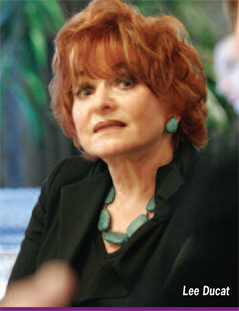Promoting ResearchA Precious Gift that Doesn’t Cost a CentThe Powerful Patient #8
How can you get doctors to study the condition that plagues you? Is there anything an ordinary person can do to promote research?
We talk in this show with another distinguished mother whose passion for helping improve her child’s life has improved the life and outlook of countless people in the United States and the world.
Lee Ducat founded the Juvenile Diabetes Foundation in 1970, to raise awareness of juvenile diabetes, raise money for research, and help her son and others manage their health.
But a greater challenge remained – how to get scientists to do research that would lead to medicines for diabetes – not just insulin, but even better ways to manage blood sugar and prevent the many life-threatening complications of diabetes, and ultimately to find a cure. The scientists needed human tissue to really make progress on this research.
Lee set out to plug this hole – to educate people as to the benefits of donating tissue for research, and then to work out a process that would transfer fresh tissue to the researchers quickly and efficiently, carefully preserved according to the requirements of the project, so that the tissue would be maximally usable for research.
Today the National Disease Research Interchange, founded by Lee and others in 1980, serves as a middleman between the patient and their local hospital on the one hand, and the researcher in the lab on the other.
Our Guest
Lee Ducat, Founder and First President of the Juvenile Diabetes Foundation (1970) and subsequently Founder and President of the National Disease Research Interchange (1980) in Philadelphia, and winner in 2007 of a gold medal as a Distinguished Daughter of Pennsylvania. More about the Juvenile Diabetes FoundationNow the Juvenile Diabetes Research Foundation International (http://www.jdrf.org), the JDRF provides information and support, and funds research into Juvenile Diabetes.
Why Donate Tissue?
You can promote research on the condition that affects you. Even if there is no researcher immediately available who is looking for such tissue, you can put it into the “bank” at NDRI, to be made available for future approved projects.
What kind of study is the donated tissue used for?
How is donation accomplished?
What happens to the tissue I donate?
The tissue will be stored in the tissue bank. Researchers will have to apply for tissue to be used for specific projects. The researchers need to pass an approval process with both their own institution’s Internal Review Board (IRB) and the NDRI. Your identity and your family’s identity will not be disclosed to the researcher. Does the donor or the donor’s family incur any expense for the donation?
There is no financial cost to the family for donation to research. If you donate blood, you may incur a modest charge from your local doctor or hospital to have the blood drawn. In the case of death, the family is responsible for regular funeral/mortuary or cremation expenses. How do I become a tissue donor?
Rare Disease Coordinator
Even if you are not already pre-registered, but an emergency situation arises and you wish to donate either as a result of surgery or death, arrangements can be made by contacting the NDRI Tissue Bank at 800-222-6374.
|
